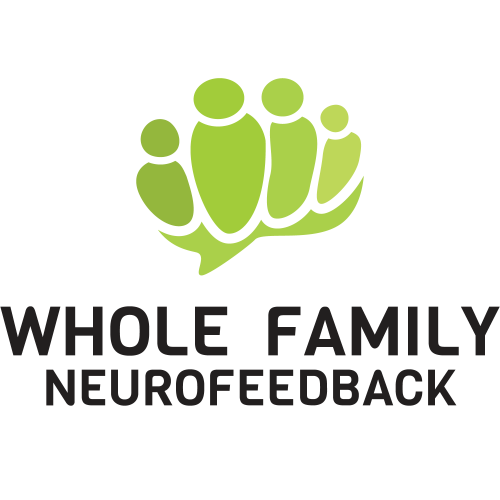Darn it! I got depressed again this weekend!
So I was doing just fine a couple of Saturdays ago. Then Sunday morning I woke up and felt that nagging sensation of a gnawing kind of sadness. In the past, before neurofeedback, I would’ve spent the day trying to figure out what had gone wrong. I would’ve wondered what I’d eaten that could have sent my neurotransmitters into a tizzy. I would’ve debated endlessly in my mind what must be going wrong in my relationships to be causing me this pain, and most likely I would’ve pinpointed someone to blame. I would’ve dabbled in self-loathing and wondered what thought loops had wound me down into this hole…all the while stuck in one of those thought loops. And then of course…the self-pity…why me?!Then I would’ve tried to come up with a PLAN! One that would get to the bottom of the problem and then rip it out by the roots! But I didn’t do any of this. Well, I did a little of it. But I stopped it. I stopped it before all of this compulsive “fixing” made things even worse.
Neurofeedback is a Process
I work hard to help our clients understand that neurofeedback isn’t a cure. It’s a process. A high tech, very powerful process, and yes, a kind of short cut to making difficult issues less difficult to handle—but a process nonetheless. And I thought this personal example illustrated what I’m talking about really well. Since using neurofeedback to manage my stress response, instead of getting lost in the depression that I still feel from time to time, I just ride it out—and it seems to dissipate fairly quickly. The over analysis and compulsive “fixing” that used to come with it was a waste of time, and I think made it a lot worse. The coolest part of this is that I think my brain knew that!
Through the unique approach to neurofeedback that is NeurOptimal® my brain decided that the analysis wasn’t a good use of my time and energy. It almost seems like the analysis fed the depression and kept it alive. Now, it barely gets a slice of bread every once in a while, and life is a lot better. But how did my brain know this? How did my brain know better than I did?
What Your Brain ‘Knows’
It’s really as simple and as complex as this: your brain knows when it (and you) are wasting energy. Compulsivity is a waste of energy, as are anxiety, depression, insomnia, lethargy, and disorganization. If your brain is sub-optimal, (and whose isn’t?!) and if your brain is fed information about its own sub-optimal-ness, it will reliably learn from this. It will reliably make the decision to grow, to stabilize, and to optimize. But it needs access to this information, or ‘feedback,’ and this is where neurofeedback can help. The brain is a remarkable organ whose entire design is to have our back. With stress and trauma, however, it can get off track.
Depression and Stress
Take a minute and google “depression and stress,” and you will find thousands of rigorous, academic research studies on whether stress reduction, particularly via mindfulness practices, makes a difference in anxiety and depression measures. The evidence is overwhelmingly positive. But what happens to those folks who are so anxious or depressed that getting to a meditation group is too much? Or if the frustration with trying unsuccessfully to quiet their over active mind gets to be too much? Or they can do a good job starting out but can’t keep it up long term? Neurofeedback offers a workaround to these very real barriers to stress reduction. It can be done at home, it requires no concentration (using NeurOptimal®), and it doesn’t have to be done daily. Usually people can keep their stress low and resilience high by doing sessions periodically after their initial sessions.
Depression and Lifestyle Choices
The Mayo Clinic and other reputable medical bodies discuss the importance of treating depression with psychotherapy, medications, classes, and lifestyle choices. The Mayo Clinic recommends self-care as an important part of these lifestyle choices, and they include good food, physical activity, and plenty of sleep.* As part of a complete wellness program, neurofeedback can reliably provide the lifestyle support needed to live and cope better with depression and anxiety. Of course, NeurOptimal® doesn’t treat or cure depression, but it helps our clients measurably with:
- Effective stress management
- Increased stress resilience
- Helping with weight loss goals (a risk factor in depression and anxiety)
- Improved sleep management
- Experiencing the joy of reparative, deep sleep
- Helps change perception of challenges
- A sense of empowerment and self-confidence
- Greater focus
- Better creativity
- More of a sense of calm
Lost Connections by Johan Hari
In thinking about depression and stress, I would also point our readers to Johan Hari’s 2018 book Lost Connections and also to Bowen Family Systems Theory. If you struggle with depression, it is important to understand it as a normal human reaction to various types of loss as well as a complex part of a multigenerational, emotional, family process. Hari outlines 9 different kinds of loss in his journalistic and easy-to-read review. Bowen Family Systems Theory offers a comprehensive understanding of the human family that is based in the biological and evolutionary sciences. If you are tired of pop-psychology and want to explore something more substantive, then I recommend checking out Bowen Theory.

The medicalization of human emotional problems has, unfortunately, led to their perpetuation. Neurofeedback using NeurOptimal® is a non-pathologizing approach to helping people develop a more empowered approach to depression and stress.
For my part, slowing down and stepping back has made a significant impact on my feelings of depression and stress, and neurofeedback has been key to my increased calm and self-confidence. Life can still be tough here and there, but my ability to get through these times more quickly and with less pain has been tremendously empowering.
*https://www.mayoclinic.org/diseases-conditions/depression/diagnosis-treatment/drc-20356013



